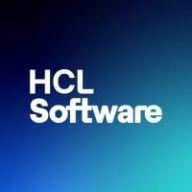

Salesforce Platform and HCL Domino compete in the enterprise software category, offering diverse capabilities and serving different use cases. Salesforce Platform holds the upper hand due to its comprehensive features and cloud deployment capabilities, catering well to large enterprises despite its higher cost.
Features: Salesforce Platform provides robust customization options, seamless app development, and an extensive partner ecosystem, making it adaptable to various business needs. Its scalability and integration capabilities are highly rated, along with high user reviews for accessibility. HCL Domino is known for its stability, security, and strong integration strengths, particularly in low-code developments and email solutions. It is lauded for ongoing improvements and robustness, ideal for security-conscious organizations.
Room for Improvement: Salesforce Platform faces challenges with pricing and complex integration processes. Extensive customization is often needed, with users requesting better support for complex tasks and solutions to high costs for additional features. HCL Domino requires improvements in user-friendliness and integration with modern software solutions. Enhancing its UI and support for integration with popular tools like Microsoft products is also suggested. While stable and functional, HCL Domino struggles with meeting contemporary user expectations.
Ease of Deployment and Customer Service: Salesforce Platform supports deployment across public, private, and hybrid clouds, offering flexibility but with complexity in setup. Its adaptability is reflected in high availability cloud options. Customer service often requires escalation for resolution, with mixed feedback on responsiveness. HCL Domino operates primarily on-premises, with limited cloud offerings, aligning with its focus on stability. It receives solid service recognition but could improve in response times and support for complex issues.
Pricing and ROI: Salesforce Platform is seen as expensive, especially for smaller businesses, with a pricing model favoring larger enterprises. However, significant ROI is reported in terms of efficiency and revenue growth, with advice to negotiate licensing agreements to manage costs. HCL Domino offers reasonable pricing compared to other solutions, with per-user licensing providing transparency. While some view its costs as high for larger deployments, the ROI is justified through robust features and consistent performance.
Salesforce saved about 40% to 50% of my time by allowing me to manage and maintain client data and account progress.
Salesforce's scalability was not a problem.
We are using it globally in thirty countries.
Salesforce Platform is absolutely scalable for us.
We have never had any problems with it.
On occasion, we had to log in and out frequently, open tickets with our IT team for account reconfiguration, or request permissions to access the system.
In-line editing of documents and a document viewer are functionalities that would be beneficial.
Using AI extensively to make the platform easier to use would also be beneficial.
Salesforce could improve by adding more capabilities to the dashboard, such as additional fields for more filters and more control over what I would like to see.
AI should pick up and send us a reminder from the notes.
The Notes client is very expensive, costing around $105 per client.
Salesforce Platform may be on the expensive side.
Its hybrid nature allows the use of both web-based applications and Notes client-based applications.
Salesforce Platform offers a complete combination of features, including dashboards and progress tracking.
The most useful features of Salesforce Platform for us include lead generation, lead management, and pipeline management.
Their reporting is also great, and the integration capability is very critical because you can integrate multiple different platforms into Salesforce.


HCL Domino (formerly IBM Domino) is a secure, enterprise-grade, application development platform. From IT to business, HCL Domino is the only low to pro-code application development platform that allows your business to build robust applications to solve workflow and process challenges fast. HCL Domino powers businesses around the world with 15,000 customers and 10 million apps built on our platform. HCL Domino has always been a secure, rock-solid, and proven solution.
Salesforce Platform is a tool that provides application building with open application programming interfaces (APIs), integration tools, back-end services, starter templates, and developer environments. With a low-code interface, users are able to build applications and benefit from automated processes. The product helps customers to increase work productivity and save on IT costs through efficient, easy-to-understand, methods for creating applications.
Salesforce Platform allows companies to build and operate intelligent applications at scale and share them with employees and customers in real time. The tool secures companies' data while connecting and synchronizing it simultaneously across their Customer 360 accounts. The main components of the product are:
Salesforce Platform Features
Also referred to as a “drag and drop app builder," this solution offers various features for customers to create intelligent applications and build personalized services for clients, partners, and employees within the apps.
Salesforce Platform Benefits
The benefits of using Salesforce Platform include:
Reviews from Real Users
A vice president at a healthcare company values Salesforce Platform because it is flexible and user-friendly with helpful pre-built schemas.
Peter G., a senior technical consultant at a tech services company, rates Salesforce Platform highly because it is intuitive, quite easy to learn, and stores all kinds of relevant sales information.
We monitor all Rapid Application Development Software reviews to prevent fraudulent reviews and keep review quality high. We do not post reviews by company employees or direct competitors. We validate each review for authenticity via cross-reference with LinkedIn, and personal follow-up with the reviewer when necessary.